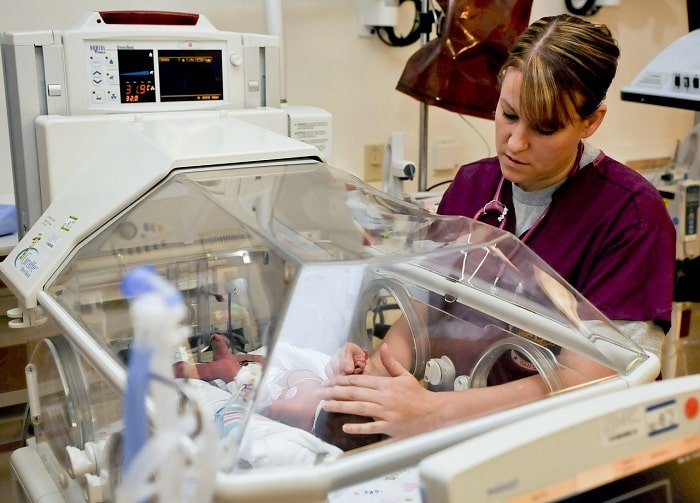The global demand for skilled nursing professionals with excellent communication skills is on the rise. In an increasingly diverse world, nurses often find themselves catering to patients whose first language is not English. This diversity, though enriching, can be challenging for effective patient care. Herein lies the invaluable advantage of a Masters in Teaching English to Speakers of Other Languages (TESOL). While seemingly unconventional, pursuing a Masters in TESOL can enrich a nurse’s career in multifaceted ways.
Enhanced Patient Communication
Understanding the nuances of a language is pivotal in healthcare. In-depth communication goes beyond exchanging pleasantries—it’s about understanding patient concerns, conveying complex medical procedures, and empathizing with individuals under stress.
Firstly, a Masters in TESOL equips nurses with advanced skills to effectively communicate with non-native English speakers. They become adept at navigating linguistic nuances, allowing them to clearly articulate medical terminologies and procedures. This proficiency transcends linguistic barriers, leading to improved patient satisfaction and outcomes.
Moreover, TESOL education imparts cultural sensitivity. Nurses become mindful of cultural differences, reducing the potential for misunderstandings. They’re better equipped to recognize non-verbal cues from different cultures, making the communication process more holistic.
Career Advancement Opportunities
Pursuing a Masters in TESOL can open doors to an array of opportunities for nurses. TESOL-qualified nurses are valuable assets to institutions seeking to improve multicultural patient care. They stand apart in the job market, demonstrating a commitment to personal development and service improvement.
Additionally, these individuals can pursue roles beyond traditional nursing, such as language interpreters, educators, or communication specialists within healthcare settings. These roles not only add diversity to their career but also provide avenues for higher remuneration.
Improved Interdisciplinary Teamwork
Healthcare is a collaborative endeavor. Nurses are part of interdisciplinary teams that include doctors, therapists, social workers, and more. Effective communication within this team is crucial for cohesive patient care.
A TESOL degree provides nurses with the tools to bridge language gaps within these teams. They can effectively facilitate conversations between team members and patients or their families. This enhanced communication can lead to improved healthcare delivery, as everyone involved has a clear understanding of the plan of care.
Personal Growth and Fulfillment
Pursuing a Masters in TESOL isn’t solely about career progression—it’s a journey of personal growth too. It enhances one’s understanding of languages, cultures, and empathy—qualities that make us better human beings.
Learning to teach English to non-native speakers helps nurses develop patience and adaptability, enhancing their interpersonal skills. These qualities aid their professional interactions and positively impact their personal relationships.
Nurses become active agents of change, promoting inclusivity and diversity within healthcare. The fulfillment derived from making a tangible difference in patients lives is, indeed, priceless.
Community Leadership
Stepping into the shoes of a TESOL-qualified nurse elevates your role to that of a community leader. When healthcare systems struggle to serve non-English speaking communities effectively, TESOL-trained nurses are poised to bridge this gap. They can offer English language training to community members, increasing their health literacy and empowering them to make informed healthcare decisions.
Moreover, TESOL-educated nurses can take the initiative in creating bilingual patient education materials. These resources prove invaluable in enhancing the community’s understanding of health issues, preventive measures, treatments, and more, fostering overall community wellness.
Global Mobility
A Masters in TESOL also offers nurses the ticket to global mobility. English being the lingua franca of many countries, TESOL-qualified nurses can leverage their expertise to seek employment opportunities abroad. Not only does this allow for experiencing diverse healthcare systems, cultures, and lifestyles, but it also significantly broadens career prospects and potential earnings.
Ways to Acquire a Masters in TESOL
When it comes to acquiring a Masters in TESOL, there are several paths to consider. Here are two commonly chosen options:
Traditional On-Campus Programs: Many universities offer full-time, on-campus Masters in TESOL programs. These programs typically span two years and provide a robust curriculum with practical teaching experience. This format is ideal for face-to-face interaction and a structured learning environment.
Online Programs: For working professionals like nurses, online MA TESOL programs offer the flexibility to balance their studies with existing commitments. These programs, delivered through a mix of synchronous and asynchronous classes, are typically just as rigorous as their on-campus counterparts. They allow learners to access coursework and resources anytime, anywhere.
Before embarking on a Masters in TESOL journey, conducting thorough research and considering factors such as program accreditation, curriculum, faculty qualifications, cost, and potential career outcomes is essential. With the right approach, nurses can successfully acquire a Masters in TESOL and use it to supercharge their careers and impact in healthcare.
Conclusion
A Masters in TESOL brings a plethora of benefits for nurses—from enhanced patient communication to global career opportunities, community leadership, and personal growth. With various ways to acquire this degree, such as traditional on-campus or flexible online programs, it’s an accessible option for nurses seeking professional advancement. Embarking on this educational journey is a testament to a nurse’s commitment to improved healthcare delivery, fostering a world where language is no longer a barrier to quality care.








